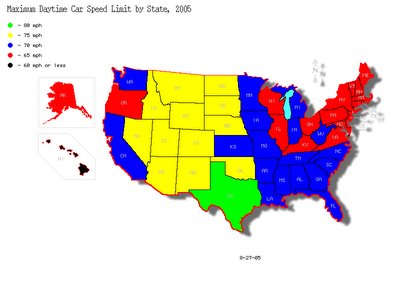Hunter Defends Wal-Mart Bill, Says He'd Like to Lower 10,000 Employee Threshold to Include Other Companies
State Senator Jon Hunter, D-Monongalia and the main sponsor of SB 147 (the Wal-Mart Bill), defended the bill this morning during an appearance on Talkline with Hoppy Kercheval. Hunter, one of the Senate's more liberal members, says he had no idea this bill was a pet project of labor unions and that he got the idea for the bill through media reports of the Maryland law. Hunter also said--confirming the worst fears of opponents of the bill--that he would like to lower the trigger threshold of 10,000 employees to force smaller businesses to spend at least 8% of their payrolls on employee health care.
The Wal-Mart Bill is all about a union vendetta against the company because its employees refuse to unionize and Wal-Mart's low-cost pricing strategy is hurting the business of unionized grocery stores that have higher costs of doing business. The unions--primarily the United Food & Commercial Workers--really want to unionize Wal-Mart to capture contributions to fund the union health care & pension funds that are paid by unionized workers at most large grocery stores that have not resisted unionization.
The Wal-Mart Bill requires only a certain level of spending on employer-provided health care relative to payroll. It does not relate to specific levels of benefits. It does not consider Wal-Mart's large number of part-time employees who get their health insurance through other family members. Indeed, the bill does not consider any possibility that Wal-Mart already provides good health insurance options for its employees and that it pays so little relative to its payroll because it has applied to its purchasing of group health insurance the same tactics it has employed to purchasing its merchandise and that save consumers billions of dollars per year at the checkout line. Indeed, I think if the unions were pressed with this possibility, they would argue that if it's true, Wal-Mart is unfairly using its size to get an unfair deal on employee health insurance and is shifting its costs onto those with less purchasing power, and should thus pay more just to be socially responsible.
Today, the union vendetta targets only Wal-Mart. However, do not doubt that if this law is implemented in Maryland, the employee threshold will be reduced and the required level of spending on employee health benefits will be increased. Aside from uniform minimum wage and overtime laws, government should not otherwise regulate the amount or form of employee compensation in any private business. Given the looming crisis with retirement income security, are we going to next require--beginning only with very large employers, of course--employers to generously contribute to employees' defined contribution plans such as 401(k)'s and IRA's, if not mandate defined benefit pension plans?
Regardless of what happens with the Wal-Mart Bill, I believe the unions are orienting all their efforts toward unionizing the company and using legislation to create more favorable conditions for their efforts. My suspicion is the unions are really hoping Wal-Mart will comply with the bill by reducing its part-time payrolls and increasing its full-time payrolls, thus increasing the proportion of Wal-Mart's workforce for whom working at Wal-Mart is their career and thus might be more likely to unionize than a retirees or students working there part-time and do not receive health insurance from Wal-Mart because they are already covered otherwise. I also believe that even if this does not happen, the unions are hoping to reduce Wal-Mart's cost advantages over its unionized competitors and thus reduce the potential for a materialization of the unions' fears of a deunionization of grocery stores that would deprive them of membership and--most importantly--money.




